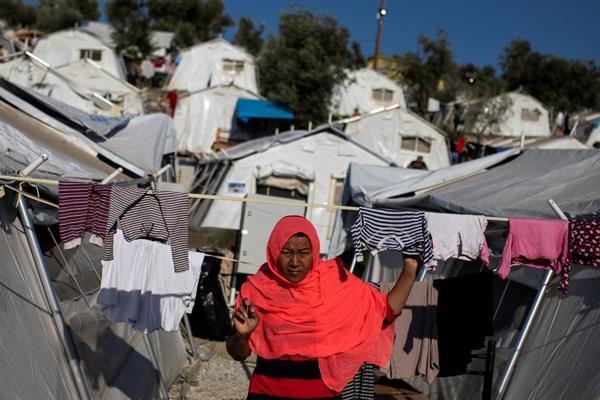Idlib attacks drive wave of Syrians to Europe
YORGO KIRBAKİ- Athens


In a sign that the Syrian refugee problem is worsening, 13 boats filled with 547 refugees landed on Greece’s Lesbos island on Aug. 29 – the biggest since the height of the crisis in 2015-16. The refugees, including 246 children, 177 men and 124 women, arrived from Turkey.
“It surprised us. We haven’t seen this type of simultaneous arrivals in this number since 2016,” Boris Cheshirkov, spokesman for the United Nations refugee agency (UNHCR) in Greece, was quoted as saying by Greek media.
An additional 32 individuals in another boat have been rescued at sea and transported to Lesbos, whereas another 65 have been rescued in two separate incidents off the island of Kos and the northern mainland city of Alexandroupolis.
Greek media reported that most of the refugees who arrived Aug. 29 in Lesbos will be taken to the Moria camp – Europe’s largest migrant reception center, holding about four times more people than it was designed to.
The world is concerned that the Syrian regime’s escalation of attacks in the war-torn country’s northwestern province of Idlib might cause more and more Syrians to flee to Europe.
The number of monthly arrivals to Greece jumped in August to over 6,000, the highest in three years, the Greek media said. Also, about 24,000 people are in the camps, also the highest number in three years, it said. Each of them operate at two or three times their capacity.
The mass arrival of refugees prompted Prime Minister Kyrakos Mitsotakis to call for an urgent meeting of the Government Council for Foreign Affairs and Defense (KYSEA) early on Aug. 31.
Decongestion of the hotspots on the islands by transferring refugees to already existing structures on the mainland will be one of the priorities of the Greek government, according to decisions taken at the meeting.
Border surveillance, in cooperation with both FRONTEX and the European authorities, as well as with NATO, will be increased, the meeting said.
Another priority of the Greek government will be immediate supply of 10 new flexible small boats for rapid response in case of movements of refugees by traffickers departing from the Turkish coast to the Greek islands.
Turkish President Recep Tayyip Erdoğan’s statements that refugees “are coming towards” Turkey and the country needs to be “cautious” in the face of the Idlib attacks, as well as Turkish Foreign Minister Mevlüt Çavuşoğlu’s warning that there can be a new wave of refugees to Europe, are said to have been impetuses for the KYSEA meeting.
